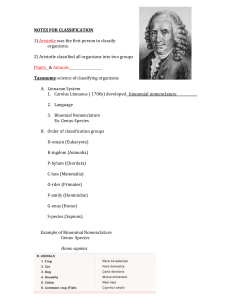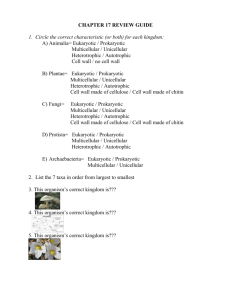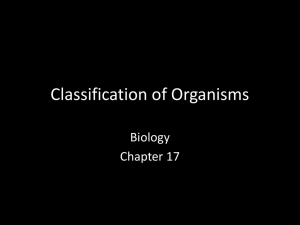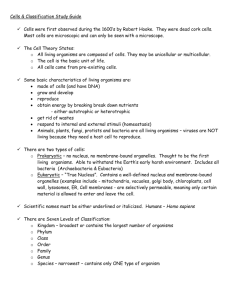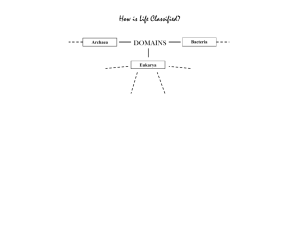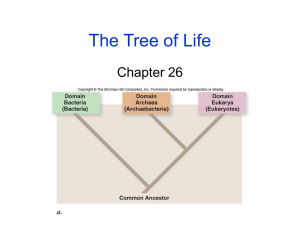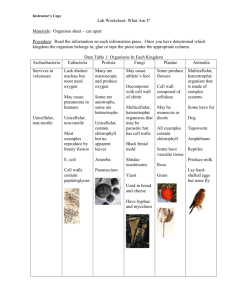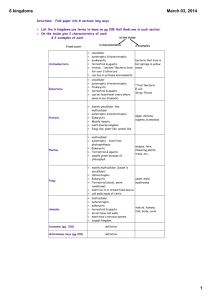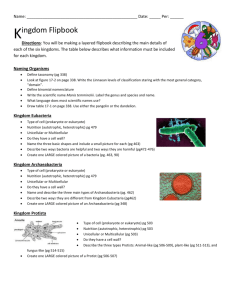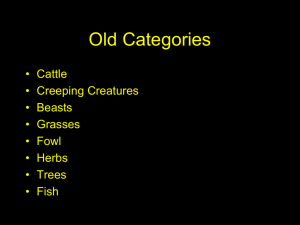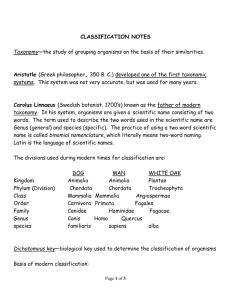Domains & Kingdoms Domain Bacteria Domain Archaea Domain
advertisement
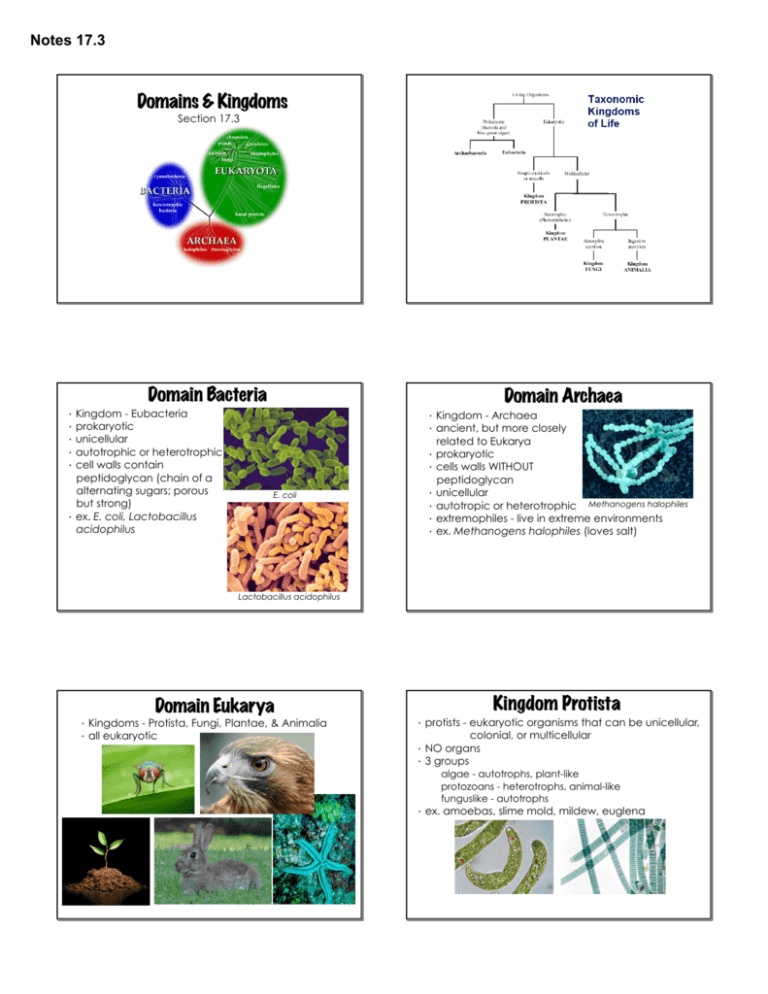
Notes 17.3 Domains & Kingdoms Section 17.3 Domain Bacteria Kingdom - Eubacteria prokaryotic unicellular autotrophic or heterotrophic cell walls contain peptidoglycan (chain of a alternating sugars; porous but strong) · ex. E. coli, Lactobacillus acidophilus Domain Archaea · · · · · E. coli · Kingdom - Archaea · ancient, but more closely related to Eukarya · prokaryotic · cells walls WITHOUT peptidoglycan · unicellular · autotropic or heterotrophic Methanogens halophiles · extremophiles - live in extreme environments · ex. Methanogens halophiles (loves salt) Lactobacillus acidophilus Domain Eukarya · Kingdoms - Protista, Fungi, Plantae, & Animalia · all eukaryotic Kingdom Protista · protists - eukaryotic organisms that can be unicellular, colonial, or multicellular · NO organs · 3 groups algae - autotrophs, plant-like protozoans - heterotrophs, animal-like funguslike - autotrophs · ex. amoebas, slime mold, mildew, euglena Notes 17.3 Kingdom Fungi · fungus - unicellular or multicellular eukaryote that absorbs nutrients from organic materials in its environment · heterotrophic · lack motility (ability to move) · cell walls with chitin · ex. mushrooms, yeast Animalia · all animals are heterotrophic, multicellular eukaryotes · no cell walls · complex organ systems Kingdom Plantae · multicellular · cell wall with cellulose · autotrophic (contain chloroplasts for photosynthesis) · lack motility · ex. moss, ferns, trees, flower plants Viruses - NOT LIVING · nucleic acid surrounded by a protein · are NOT included in biological classification system
